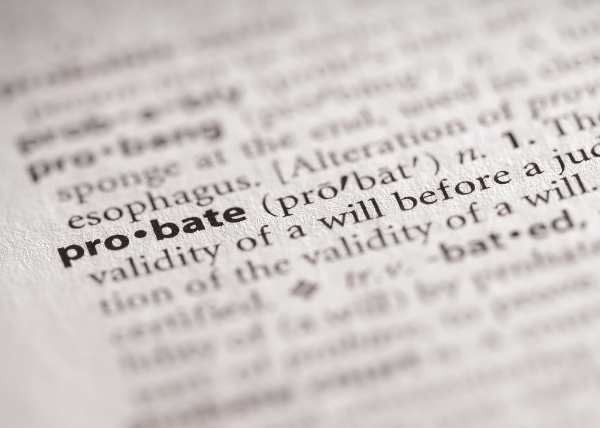
How Long Does Probate Take?
On average, probate can take anywhere from several months to a year or more. However, probate duration can vary widely depending on several factors, including the complexity of the estate, local laws, court schedules, and potential disputes. While there's no fixed timeline for probate, we can provide some general insights to give you an idea. What is Probate? Probate is a legal process that involves validating and administering a person's will after their death. It is overseen by the court […]
Read More
Navigating legal matters can sometimes feel overwhelming, especially when it comes to elder law and planning for the future. We're here to help simplify complex topics. Today, let's dive into the essential concept of "probate," shedding light on what it is and why it matters in planning for a loved one's or your future. Understanding Probate Probate is a legal process that takes place after someone passes away. It involves validating the deceased person's will (if there is one), settling […]
Read More
Will Medicaid Pay for 24-Hour Home Care?
As we age, it's natural to want to remain in the comfort of our own homes while receiving the care we need. If you or a loved one requires around-the-clock assistance, you might be wondering: Will Medicaid pay for 24-hour home care? Medicaid can provide essential assistance for home care needs, including 24-hour care, but coverage varies by state and individual circumstances. We'll explore the possibilities and provide insights into Medicaid's coverage for this type of care. Understanding Medicaid and […]
Read More
What Is the Treatment for Bed Sores?
Treating bed sores requires a comprehensive and personalized approach that considers the individual's overall health, the stage of the sore, and potential complications. Early detection, proper wound care, and the support of healthcare professionals are crucial to promoting healing and preventing further issues. Bed sores, also known as pressure ulcers or decubitus ulcers, can be a significant concern for seniors who spend prolonged periods in the same position, such as those who are bedridden or use wheelchairs. We'll explore the […]
Read More
Do You Need a Lawyer to Revoke Power of Attorney?
The short answer is no, you are not legally required to hire a lawyer to revoke a Power of Attorney. As long as you follow the necessary steps and create a valid revocation document, the process can be completed independently. However, involving an elder law attorney can provide additional peace of mind and ensure that all legal requirements are met. In this article, we'll explore the process of revoking a POA and whether legal representation is necessary. What is Power […]
Read More
Can a Family Member Override a Power of Attorney?
Can a Family Member Override a Power of Attorney? In general, a family member does not have the automatic authority to override a valid Power of Attorney. The power granted to the agent is legally binding, and their decisions must be respected as long as the document is still in effect and the agent is acting within the scope of their authority. However, there may be certain circumstances where family members may challenge the agent's decisions. In this article, we'll […]
Read More
Can a Family Member Revoke a Power of Attorney?
It depends. A family member can revoke a power of attorney if they have been granted the authority to do so. On the flip side, if the family member has not been given the proper authority they cannot revoke a POA. The specific process and requirements for revoking a power of attorney may vary depending on the jurisdiction and the terms outlined in the original power of attorney document. It is advisable to consult with an elder law attorney to […]
Read More
How To Choose an Executor For Your Will
Choosing an executor for your will is an essential part of estate planning that often doesn't get the attention it deserves. The person you designate as your executor will play a critical role in ensuring your last wishes are honored and your estate is settled according to your desires. Let's go over how to choose an executor for your will. What is an Executor of a Will? An Executor of a Will is a person who is appointed to carry […]
Read More
Can I Claim My Parent as Dependent?
In the United States, the concept of claiming someone as a dependent on your tax return is usually associated with children. However, did you know that under certain circumstances, you may also be able to claim your parent as a dependent? Here, we'll explore this intriguing and often-overlooked aspect of elder care and taxation. What Does It Mean To Claim A Parent As A Dependent? The Internal Revenue Service (IRS) allows taxpayers to claim qualifying individuals as dependents in order […]
Read More







